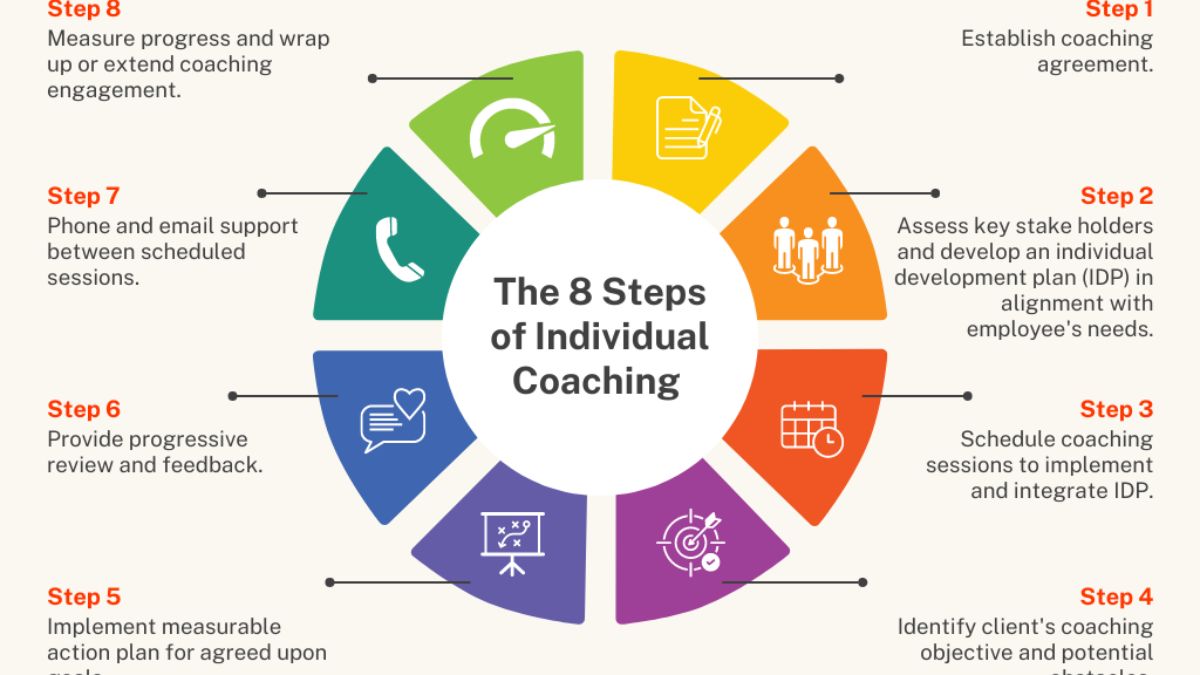In today’s fast-paced and highly competitive professional world, career success is often linked to our ability to form meaningful relationships, communicate effectively, and manage emotions. While technical skills and expertise are crucial, emotional intelligence and interpersonal abilities can make all the difference. This is where attachment coaching plays a pivotal role.
Attachment theory, originally developed to understand the bond between infants and their caregivers, has evolved to explain how attachment patterns influence our relationships throughout life—including in the workplace. An attachment coach helps individuals recognize and modify their attachment behaviors to enhance their emotional well-being, communication, and overall performance at work. In this article, we will explore how attachment coaching can improve career success and unlock your full potential in the professional world.
What is Attachment Coaching?
Attachment coaching is a specialized form of coaching that focuses on helping individuals understand their attachment style and how it affects their relationships, behavior, and emotional responses. Attachment styles are the patterns of behavior and emotional responses developed in childhood and continue to shape how we interact with others throughout adulthood.
In the workplace, attachment styles affect how we interact with colleagues, handle stress, resolve conflicts, and cope with feedback. An attachment coach helps individuals identify their attachment style, recognize its impact on their professional life, and develop strategies to foster secure, productive, and harmonious workplace relationships.
How Attachment Styles Impact Career Success
Each attachment style has its strengths and challenges when it comes to career success. Here’s how they can influence your work life:
1. Secure Attachment: The Strength of Emotional Balance
Individuals with a secure attachment style tend to have high emotional intelligence, which allows them to manage stress effectively, build trust with others, and collaborate seamlessly. They are comfortable with intimacy but also respect boundaries. In a professional context, secure individuals:
- Excel in leadership roles due to their ability to navigate complex relationships.
- Communicate effectively and are skilled at resolving conflicts.
- Handle criticism and feedback constructively, viewing it as an opportunity for growth.
The foundation of career success is often emotional intelligence, and secure attachment fosters the emotional resilience needed for high performance in demanding work environments.
2. Anxious Attachment: Overcoming Fear of Rejection
People with anxious attachment styles tend to seek constant reassurance and approval from others, fearing rejection or abandonment. In the workplace, this can manifest as:
- Difficulty handling criticism, which can affect self-confidence and performance.
- Overworking or becoming overly dependent on supervisors or colleagues for validation.
- Struggling with uncertainty, leading to heightened stress in high-pressure situations.
An attachment coach can help individuals with anxious attachment by teaching them how to self-soothe, build self-confidence, and embrace uncertainty without becoming overwhelmed. Coaching can also help them shift from seeking external validation to developing a strong internal sense of self-worth, which is essential for sustainable career success.
3. Avoidant Attachment: Overcoming Emotional Distance
Individuals with an avoidant attachment style often have difficulty with emotional intimacy and may struggle with vulnerability in the workplace. They are more likely to:
- Avoid asking for help or collaborating closely with colleagues, potentially limiting their ability to work in teams.
- Keep their emotions guarded, which can hinder effective communication and relationships with others.
- Resist feedback or constructive criticism, viewing it as a threat to their independence.
4. Disorganized Attachment: Navigating Internal Conflict
Disorganized attachment is often a result of unresolved trauma or inconsistent caregiving in childhood. Individuals with this style may experience internal conflict, oscillating between seeking connection and pushing others away. In the workplace, they may:
- Struggle with trust, leading to difficulty in forming stable professional relationships.
- Experience inconsistent performance due to emotional volatility or unresolved past issues.
- Become overwhelmed by work stress, which may trigger anxiety or avoidance.
Attachment coaching for individuals with disorganized attachment involves processing past trauma, developing healthy emotional coping strategies, and fostering trust with others. This leads to more consistent performance, better collaboration, and improved emotional regulation in the workplace.
The Benefits of Attachment Coaching for Career Success
Regardless of your attachment style, attachment coaching offers numerous benefits that directly impact your career success:
1. Enhanced Emotional Intelligence
A key component of career success is the ability to navigate your emotions and understand the emotions of others. Attachment coaching helps you increase your emotional intelligence by:
- Developing self-awareness and empathy.
- Improving communication skills and conflict resolution.
- Managing stress and emotional responses more effectively.
By learning to manage your emotions, you can build stronger, more productive relationships with colleagues, clients, and supervisors.
2. Improved Communication Skills
Effective communication is at the core of professional success. Attachment coaching helps you:
- Express your needs and desires clearly and confidently.
- Listen actively and empathetically to others.
- Adapt your communication style to different individuals and situations.
Whether in team meetings, one-on-one conversations, or high-stakes negotiations, improved communication enhances your ability to collaborate and lead.
3. Stronger Workplace Relationships
Building strong relationships at work is essential for career advancement. Attachment coaching helps you:
- Build trust and mutual respect with colleagues.
- Overcome interpersonal barriers caused by past attachment wounds.
- Navigate challenging workplace dynamics with grace and confidence.
By improving your relationships with coworkers, you’ll create a supportive network that can help propel your career forward.
4. Increased Resilience and Stress Management
Career setbacks and challenges are inevitable, but your ability to bounce back is what determines long-term success. Attachment coaching teaches resilience by:
- Helping you accept criticism constructively.
- Teaching emotional regulation techniques to reduce anxiety and stress.
- Fostering a growth mindset to approach challenges with confidence.
With these skills, you can tackle career obstacles with a calm, focused mindset.
How an Attachment Coach Can Support Your Career Growth
An attachment coach uses a variety of tools and techniques to support your emotional and professional development, including:
- Self-Reflection Exercises to uncover your attachment style and its impact on your work.
- Role-Playing Scenarios to practice effective communication and conflict resolution.
- Mindfulness Practices to manage stress and enhance emotional regulation.
- Behavioral Coaching to implement new strategies and achieve personal and professional goals.
By working with an attachment coach, you can develop a clear action plan to build on your strengths, address your challenges, and unlock your career potential.
Final Thoughts
The link between attachment styles and career success is undeniable. Whether you have a secure, anxious, avoidant, or disorganized attachment style, attachment coaching can help you better understand yourself, improve your relationships, and enhance your professional performance. By working with an attachment coach, you’ll gain the tools and insights needed to thrive in today’s dynamic work environment, unlocking new opportunities and building lasting success.















